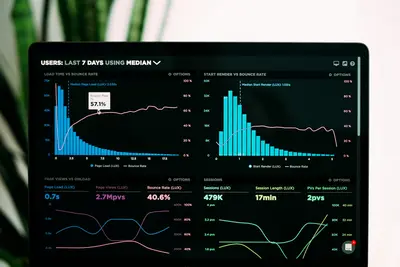🔭 OpenTelemetry Observability on AlmaLinux 9: Complete Guide
Ready to unify all your observability data? 🚀 Today we’ll deploy OpenTelemetry on AlmaLinux 9, creating a powerful observability platform that collects everything! Let’s see everything! ✨🎯
🤔 Why is OpenTelemetry Important?
Imagine one standard for all observability data! 🌟 That’s OpenTelemetry’s superpower! Here’s why it’s revolutionary:
- 🔄 Unified Collection - Metrics, traces, and logs in one place!
- 📦 Vendor Neutral - Works with any observability backend
- 🚀 Auto-Instrumentation - Zero-code observability
- 🎯 Industry Standard - CNCF incubating project
- 📊 Rich Context - Correlate all telemetry types
- 🌍 Language Support - Works with all major languages
- 🛡️ Production Ready - Used by major companies
- 💡 Future Proof - The future of observability
🎯 What You Need
Before we observe everything, gather these:
- ✅ AlmaLinux 9 server (4GB RAM minimum, 8GB recommended)
- ✅ Kubernetes cluster 1.24+ (optional but recommended)
- ✅ kubectl configured (for K8s deployment)
- ✅ Observability backend (Jaeger, Prometheus, etc.)
- ✅ Application to monitor
- ✅ Root or sudo access
- ✅ Basic monitoring knowledge
- ✅ Ready for complete observability! 🎉
📝 Step 1: Install OpenTelemetry Collector
Let’s install the collector on AlmaLinux 9! 🛠️
Direct Installation on AlmaLinux
# Update system
sudo dnf update -y # Keep everything current
# Download OpenTelemetry Collector
OTEL_VERSION="0.108.0" # Check latest version
wget https://github.com/open-telemetry/opentelemetry-collector-releases/releases/download/v${OTEL_VERSION}/otelcol_${OTEL_VERSION}_linux_amd64.rpm
# Install the collector
sudo rpm -ivh otelcol_${OTEL_VERSION}_linux_amd64.rpm
# Verify installation
otelcol --version # Shows version
# Check service status
sudo systemctl status otelcol # Should be inactive initiallyConfigure Collector
# Create configuration directory
sudo mkdir -p /etc/otelcol
# Create basic configuration
sudo tee /etc/otelcol/config.yaml <<EOF
receivers:
# Receive OTLP data via gRPC and HTTP
otlp:
protocols:
grpc:
endpoint: 0.0.0.0:4317
http:
endpoint: 0.0.0.0:4318
# Collect host metrics
hostmetrics:
collection_interval: 10s
scrapers:
cpu:
disk:
filesystem:
load:
memory:
network:
paging:
processes:
# Collect Prometheus metrics
prometheus:
config:
scrape_configs:
- job_name: 'otel-collector'
scrape_interval: 10s
static_configs:
- targets: ['localhost:8888']
processors:
# Batch telemetry data
batch:
timeout: 10s
send_batch_size: 1024
# Add resource attributes
resource:
attributes:
- key: service.name
value: "otel-collector"
action: insert
- key: host.name
from_attribute: host.hostname
action: insert
# Memory limiter prevents OOM
memory_limiter:
check_interval: 1s
limit_mib: 512
spike_limit_mib: 128
exporters:
# Export to console for debugging
debug:
verbosity: detailed
# Export OTLP to backends
otlp/jaeger:
endpoint: localhost:4317
tls:
insecure: true
# Export metrics to Prometheus
prometheusremotewrite:
endpoint: http://localhost:9090/api/v1/write
# Export to file
file:
path: /var/log/otelcol/telemetry.json
extensions:
# Health check
health_check:
endpoint: :13133
# Performance profiling
pprof:
endpoint: :1888
# zPages for debugging
zpages:
endpoint: :55679
service:
extensions: [health_check, pprof, zpages]
pipelines:
traces:
receivers: [otlp]
processors: [memory_limiter, batch, resource]
exporters: [debug, otlp/jaeger]
metrics:
receivers: [otlp, hostmetrics, prometheus]
processors: [memory_limiter, batch, resource]
exporters: [debug, prometheusremotewrite]
logs:
receivers: [otlp]
processors: [memory_limiter, batch]
exporters: [debug, file]
EOF
# Start the collector
sudo systemctl enable --now otelcol
# Check status
sudo systemctl status otelcol # Should be active🔧 Step 2: Deploy on Kubernetes
Let’s deploy OpenTelemetry on Kubernetes! 🎊
Install with Helm
# Add OpenTelemetry Helm repository
helm repo add open-telemetry https://open-telemetry.github.io/opentelemetry-helm-charts
helm repo update
# Create namespace
kubectl create namespace opentelemetry
# Install as DaemonSet (recommended for node metrics)
cat <<EOF > otel-values.yaml
mode: daemonset
presets:
# Enable logs collection
logsCollection:
enabled: true
includeCollectorLogs: true
# Enable Kubernetes attributes
kubernetesAttributes:
enabled: true
extractAllPodLabels: true
extractAllPodAnnotations: true
# Enable host metrics
hostMetrics:
enabled: true
# Enable kubelet metrics
kubeletMetrics:
enabled: true
config:
receivers:
# OTLP receiver for applications
otlp:
protocols:
grpc:
endpoint: 0.0.0.0:4317
http:
endpoint: 0.0.0.0:4318
# Kubernetes events
k8s_events:
auth_type: serviceAccount
processors:
# K8s metadata enrichment
k8sattributes:
extract:
metadata:
- k8s.namespace.name
- k8s.deployment.name
- k8s.statefulset.name
- k8s.daemonset.name
- k8s.cronjob.name
- k8s.job.name
- k8s.node.name
- k8s.pod.name
- k8s.pod.uid
- k8s.pod.start_time
exporters:
# Debug output
debug:
verbosity: detailed
# Send to Jaeger
otlp/jaeger:
endpoint: jaeger-collector.tracing:4317
tls:
insecure: true
# Send to Prometheus
prometheus:
endpoint: "0.0.0.0:8889"
service:
pipelines:
traces:
receivers: [otlp]
processors: [k8sattributes, memory_limiter, batch]
exporters: [debug, otlp/jaeger]
metrics:
receivers: [otlp, hostmetrics, kubeletstats]
processors: [k8sattributes, memory_limiter, batch]
exporters: [debug, prometheus]
logs:
receivers: [otlp, filelog]
processors: [k8sattributes, memory_limiter, batch]
exporters: [debug]
resources:
limits:
cpu: 1000m
memory: 2Gi
requests:
cpu: 200m
memory: 512Mi
EOF
# Install OpenTelemetry Collector
helm install opentelemetry-collector \
open-telemetry/opentelemetry-collector \
--namespace opentelemetry \
--values otel-values.yaml
# Verify installation
kubectl get pods -n opentelemetry
kubectl get svc -n opentelemetryInstall OpenTelemetry Operator
# Install cert-manager (required)
kubectl apply -f https://github.com/cert-manager/cert-manager/releases/download/v1.13.0/cert-manager.yaml
# Wait for cert-manager
kubectl wait --for=condition=Available deployment/cert-manager -n cert-manager --timeout=120s
# Install OpenTelemetry Operator
kubectl apply -f https://github.com/open-telemetry/opentelemetry-operator/releases/latest/download/opentelemetry-operator.yaml
# Verify operator
kubectl get pods -n opentelemetry-operator-system🌟 Step 3: Auto-Instrumentation Setup
Let’s enable zero-code instrumentation! 🚀
Configure Auto-Instrumentation
# Create Instrumentation resource
cat <<EOF | kubectl apply -f -
apiVersion: opentelemetry.io/v1alpha1
kind: Instrumentation
metadata:
name: my-instrumentation
namespace: default
spec:
# Common configuration
exporter:
endpoint: http://opentelemetry-collector.opentelemetry:4317
propagators:
- tracecontext
- baggage
- b3
sampler:
type: parentbased_traceidratio
argument: "1.0"
# Java auto-instrumentation
java:
image: ghcr.io/open-telemetry/opentelemetry-operator/autoinstrumentation-java:latest
env:
- name: OTEL_LOGS_EXPORTER
value: otlp
# Python auto-instrumentation
python:
image: ghcr.io/open-telemetry/opentelemetry-operator/autoinstrumentation-python:latest
env:
- name: OTEL_METRICS_EXPORTER
value: otlp
- name: OTEL_LOGS_EXPORTER
value: otlp
# Node.js auto-instrumentation
nodejs:
image: ghcr.io/open-telemetry/opentelemetry-operator/autoinstrumentation-nodejs:latest
# .NET auto-instrumentation
dotnet:
image: ghcr.io/open-telemetry/opentelemetry-operator/autoinstrumentation-dotnet:latest
# Go auto-instrumentation
go:
image: ghcr.io/open-telemetry/opentelemetry-operator/autoinstrumentation-go:latest
EOF
# Annotate your deployments for auto-instrumentation
kubectl annotate deployment my-app \
instrumentation.opentelemetry.io/inject-python="true" \
instrumentation.opentelemetry.io/container-names="my-container"
# Restart deployment to apply
kubectl rollout restart deployment my-app✅ Step 4: Collect All Telemetry Types
Let’s collect metrics, traces, and logs! 📊
Application Instrumentation Example
# Example Python application with OpenTelemetry
cat <<EOF > app.py
from opentelemetry import trace, metrics
from opentelemetry.exporter.otlp.proto.grpc.trace_exporter import OTLPSpanExporter
from opentelemetry.exporter.otlp.proto.grpc.metric_exporter import OTLPMetricExporter
from opentelemetry.sdk.trace import TracerProvider
from opentelemetry.sdk.trace.export import BatchSpanProcessor
from opentelemetry.sdk.metrics import MeterProvider
from opentelemetry.sdk.metrics.export import PeriodicExportingMetricReader
from opentelemetry.instrumentation.flask import FlaskInstrumentor
from flask import Flask
import logging
# Configure tracing
trace.set_tracer_provider(TracerProvider())
tracer = trace.get_tracer(__name__)
span_processor = BatchSpanProcessor(
OTLPSpanExporter(endpoint="localhost:4317", insecure=True)
)
trace.get_tracer_provider().add_span_processor(span_processor)
# Configure metrics
metric_reader = PeriodicExportingMetricReader(
exporter=OTLPMetricExporter(endpoint="localhost:4317", insecure=True),
export_interval_millis=10000
)
metrics.set_meter_provider(MeterProvider(metric_readers=[metric_reader]))
meter = metrics.get_meter(__name__)
# Create metrics
request_counter = meter.create_counter(
"requests_total",
description="Total number of requests"
)
# Flask app
app = Flask(__name__)
FlaskInstrumentor().instrument_app(app)
@app.route('/')
def hello():
with tracer.start_as_current_span("process_request"):
request_counter.add(1, {"endpoint": "/"})
logging.info("Processing request")
return "Hello from OpenTelemetry! 🔭"
if __name__ == '__main__':
app.run(host='0.0.0.0', port=5000)
EOF
# Install dependencies
pip install opentelemetry-distro opentelemetry-exporter-otlp
pip install opentelemetry-instrumentation-flask flask
# Run with auto-instrumentation
opentelemetry-instrument python app.py🎮 Quick Examples
Let’s explore OpenTelemetry features! 🎬
Example 1: Custom Collector Pipeline
# Advanced collector configuration
cat <<EOF | sudo tee -a /etc/otelcol/config.yaml
receivers:
# Scrape Prometheus endpoints
prometheus:
config:
scrape_configs:
- job_name: 'kubernetes-pods'
kubernetes_sd_configs:
- role: pod
relabel_configs:
- source_labels: [__meta_kubernetes_pod_annotation_prometheus_io_scrape]
action: keep
regex: true
# Collect Docker metrics
docker_stats:
endpoint: unix:///var/run/docker.sock
collection_interval: 10s
processors:
# Filter by attributes
filter:
metrics:
include:
match_type: regexp
metric_names:
- prefix/.*
- prefix2/.*
# Transform data
transform:
metric_statements:
- context: datapoint
statements:
- set(attributes["environment"], "production")
exporters:
# Multiple destinations
loadbalancing:
protocol:
otlp:
timeout: 1s
resolver:
static:
hostnames:
- backend-1:4317
- backend-2:4317
EOF
sudo systemctl restart otelcolExample 2: Trace Context Propagation
# Deploy sample microservices
cat <<EOF | kubectl apply -f -
apiVersion: apps/v1
kind: Deployment
metadata:
name: frontend
spec:
replicas: 1
selector:
matchLabels:
app: frontend
template:
metadata:
labels:
app: frontend
annotations:
instrumentation.opentelemetry.io/inject-nodejs: "true"
spec:
containers:
- name: frontend
image: otel/demo:frontend
env:
- name: BACKEND_URL
value: http://backend:8080
- name: OTEL_SERVICE_NAME
value: frontend-service
---
apiVersion: apps/v1
kind: Deployment
metadata:
name: backend
spec:
replicas: 1
selector:
matchLabels:
app: backend
template:
metadata:
labels:
app: backend
annotations:
instrumentation.opentelemetry.io/inject-java: "true"
spec:
containers:
- name: backend
image: otel/demo:backend
env:
- name: OTEL_SERVICE_NAME
value: backend-service
EOF
# Traces will automatically propagate between services!Example 3: Metrics Dashboard
# Create ServiceMonitor for Prometheus
cat <<EOF | kubectl apply -f -
apiVersion: v1
kind: Service
metadata:
name: otel-metrics
namespace: opentelemetry
labels:
app: opentelemetry-collector
spec:
ports:
- name: metrics
port: 8889
targetPort: 8889
selector:
app.kubernetes.io/name: opentelemetry-collector
---
apiVersion: monitoring.coreos.com/v1
kind: ServiceMonitor
metadata:
name: otel-collector
namespace: opentelemetry
spec:
selector:
matchLabels:
app: opentelemetry-collector
endpoints:
- port: metrics
interval: 30s
path: /metrics
EOF🚨 Fix Common Problems
Don’t panic! Here are solutions! 💪
Problem 1: Collector Not Receiving Data
# Check collector status
sudo systemctl status otelcol
sudo journalctl -u otelcol -f
# Verify endpoints are listening
sudo netstat -tlnp | grep otelcol
# Test OTLP endpoint
curl -X POST http://localhost:4318/v1/traces \
-H "Content-Type: application/json" \
-d '{}'
# Check firewall
sudo firewall-cmd --add-port=4317/tcp --permanent
sudo firewall-cmd --add-port=4318/tcp --permanent
sudo firewall-cmd --reloadProblem 2: High Memory Usage
# Adjust memory limits in config
sudo vi /etc/otelcol/config.yaml
# Modify memory_limiter processor:
# limit_mib: 256
# spike_limit_mib: 64
# Monitor collector metrics
curl http://localhost:8888/metrics | grep memory
# Enable sampling
# Add to config:
# processors:
# probabilistic_sampler:
# sampling_percentage: 10Problem 3: Auto-Instrumentation Not Working
# Check operator logs
kubectl logs -n opentelemetry-operator-system deployment/opentelemetry-operator-controller-manager
# Verify instrumentation resource
kubectl get instrumentation -A
kubectl describe instrumentation my-instrumentation
# Check pod annotations
kubectl describe pod <your-pod>
# Restart pod after annotation
kubectl delete pod <your-pod>📋 Simple Commands Summary
Your OpenTelemetry command toolkit! 📚
| Command | What It Does | When to Use |
|---|---|---|
otelcol --config config.yaml | Start collector | Manual start |
sudo systemctl status otelcol | Check service | Verify running |
curl localhost:13133 | Health check | Monitor health |
curl localhost:55679/debug/tracez | View traces | Debug traces |
kubectl get instrumentation | List auto-instrument | Check setup |
helm upgrade opentelemetry-collector | Update collector | Apply changes |
otelcol validate --config | Validate config | Before restart |
kubectl logs -l app=opentelemetry | View logs | Troubleshoot |
curl localhost:8888/metrics | Collector metrics | Monitor performance |
kubectl port-forward svc/otel 4317 | Access collector | Local testing |
💡 Tips for Success
Master observability with these tips! 🏆
Collection Strategy
- 📊 Start with essential signals only
- 🎯 Use sampling for high-volume traces
- 💾 Batch data for efficiency
- 🔄 Enable compression for exports
- ⚡ Use memory limiter to prevent OOM
Best Practices
- 🛡️ Secure OTLP endpoints with TLS
- 📝 Use semantic conventions
- 🔍 Add resource attributes
- ⚠️ Set up health monitoring
- 📈 Track collector metrics
- 🎨 Use consistent naming
- 💡 Document your setup
Performance Optimization
- 🚀 Use batch processor always
- 🎯 Filter unnecessary data early
- 📊 Monitor collector resource usage
- 💾 Configure appropriate queue sizes
- 🔄 Use load balancing for scale
🏆 What You Learned
Fantastic work! You’re now an OpenTelemetry expert! 🎉 You can:
- ✅ Install OpenTelemetry on AlmaLinux 9
- ✅ Deploy collectors on Kubernetes
- ✅ Configure auto-instrumentation
- ✅ Collect metrics, traces, and logs
- ✅ Set up processing pipelines
- ✅ Export to multiple backends
- ✅ Troubleshoot common issues
- ✅ Optimize collector performance
🎯 Why This Matters
You’ve unified all observability! 🚀 With OpenTelemetry:
- One Standard - No more proprietary formats
- Vendor Freedom - Switch backends anytime
- Complete Context - Correlate all signals
- Zero-Code - Auto-instrumentation magic
- Future Proof - Industry-wide adoption
- Cost Efficient - One collector for everything
- Production Ready - Battle-tested at scale
Your observability is now truly unified! No more data silos, no more vendor lock-in. Everything flows through one standard pipeline.
Keep exploring features like tail sampling, semantic conventions, and custom instrumentation. You’re building the future of observability! 🌟
Remember: Observability is a journey - OpenTelemetry is your compass! Happy observing! 🎊🔭
P.S. - Join the OpenTelemetry community, contribute to the project, and share your observability journey! Together we’re standardizing observability! ⭐🙌




